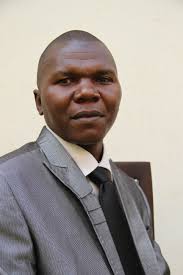
Youth, Indigenisation and Economic Empowerment deputy minister Mathias Tongofa yesterday said 1 170 companies in Zimbabwe have now been indigenised.
by VENERANDA LANGA
Tongofa appeared before the Parliamentary Portfolio Committee on Industry and Commerce chaired by Edmore Mhere where he defended the Indigenisation policy.
He said the policy was not deterring investors, but argued other factors that had nothing to do with the law were responsible for lack of investment.
“A total of 1 170 companies have been indigenised so far and some of the benefits include that the companies are adopting youth vocational training centres, building schools and providing equipment for projects,” Tongofa said.
“It is not true that the indigenisation law is the one that has stalled the coming in of investors in the country because there are other factors that have added to it that include the need to improve the investment climate and business opportunities in the country.”
Tongofa said World Bank indicators that investors looked at when making decisions to invest in a country included the ease of starting a business, dealing with construction permits, getting electricity, registering a property, getting credit, protecting minority investors, paying taxes, trading across borders, enforcing contracts and resolving insolvency.
He said in the mining sector, compliance of the 51%-49% shareholding requirement should be achieved within six months, while all businesses with a net value of $100 000 in the manufacturing sector shall have a lesser share of 26% in the first year and 51% within four years.
- Chamisa under fire over US$120K donation
- Mavhunga puts DeMbare into Chibuku quarterfinals
- Pension funds bet on Cabora Bassa oilfields
- Councils defy govt fire tender directive
Keep Reading
The deputy minister indicated that thresholds for compliance varied.
“The Indigenisation legislation grants the minister the power to flexibly vary maximum period of compliance depending on particular circumstances of each business since the government is aware that this is not an overnight event and not all companies are ready to comply immediately with the Act,” Tongofa said.
Tongofa said his ministry would crack the whip on companies like Tongaat-Hulett, Bikita Minerals and Renco Mine, which he alleged were not serious about contributing to community share ownership trusts.
“We are working hard to bring those companies to answer for themselves,” he said.
“We cannot work with companies that do not comply with the indigenisation policy. Bikita Minerals has since paid $50 000 out of the $500 000 they had pledged. Companies should not survive in this country without complying with the law while other companies comply.”
On Marange companies which had pledged to capitalise Zimunya Marange CSOT with $1,5 million, Tongofa said $450 000 had been received since it was launched, adding the companies had come up with payment plans citing challenges.
Highfield East MP Erick Murai alleged the indigenisation policy was being politicised such that people like former Zanu PF secretary of administration Didymus Mutasa lost their properties like land after their ties with the party were severed.
On youth loans, Tongofa said $5 million was disbursed through the CABS Bank facility with $1 million disbursed to each province.
“This faced several challenges like that the loans were 95,5% non-performing and as a result, the facility was suspended for a while, but it will be resumed,” he said.
“They experienced difficulties in opening markets and starting up companies, but we are trying to address some of those challenges. The selection was done by the banks and not the ministry.”











